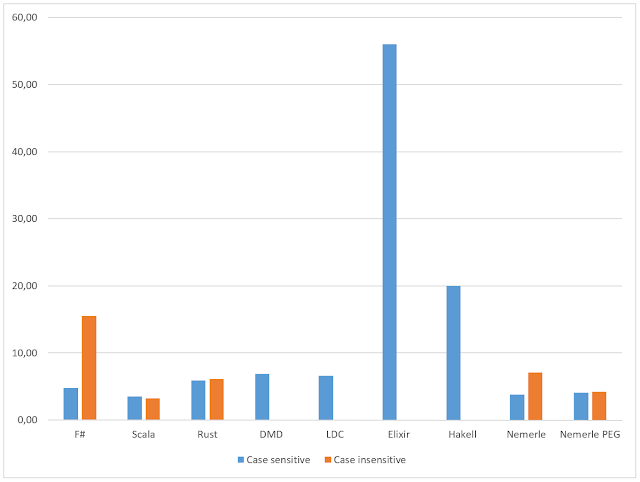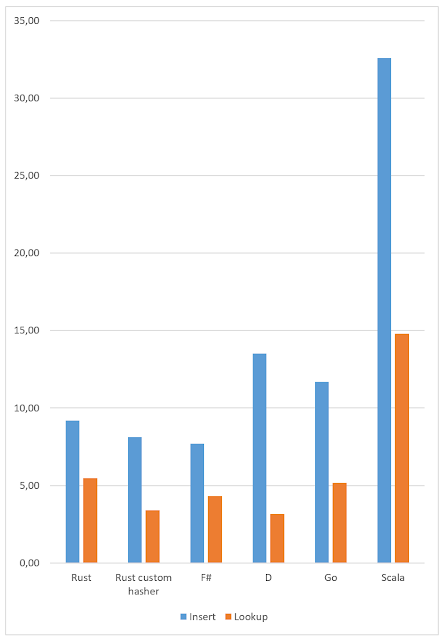Haskell: performance
It turned out that it's not Haskell who was slow in my previous Fibonacci test. It was my lack of Haskell knowledge. Haskell has two integral types - Int, which has bounds -2147483648..2147483647 and Integer, which is unbounded. Both types implement Integral type class, so out fib function can be defined in terms of this type class:
OK, now we can test performance of the function parametrizing it with the two concrete types. Integer first:
We get our previous result ~15 seconds which is rather slow. Now test it with Int type:
Whoa! The Int type is ~6 times faster than Integer! And with result of 2.8 seconds Haskell's took the third position in our small rating :) Current list (in seconds):
OK, now we can test performance of the function parametrizing it with the two concrete types. Integer first:
We get our previous result ~15 seconds which is rather slow. Now test it with Int type:
Whoa! The Int type is ~6 times faster than Integer! And with result of 2.8 seconds Haskell's took the third position in our small rating :) Current list (in seconds):
- C# - 1.26
- F# - 1.38
- Nemerle - 1.45
- Haskell - 2.8
- Clojure - 9
- Erlang - 17
- Ruby - 60
- Python - 120



Comments
100 free 제왕 카지노 spins with no deposit 바카라 사이트 required! Get up to 500 free spins 샌즈카지노 in online casino games or bonus rounds with a deposit bonus.